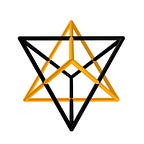Escaping the Vortex of Standardized Tests: A Game Plan
Teachers of mathematics have been grousing, justifiably, that most of the creativity has been sucked from their discipline by a simple equation: test scores = all that matters.
Working backwards from standardized tests nets you a somewhat dry and disjointed subject we might call “math” (in scare quotes).
You may find teachers in other subject areas likewise turned off by some cardboard-flavored, fast food, imitation of their discipline, geared towards scoring high on standardized tests.
However, another faction, posing as a kind of “math establishment” points out the useful role played by testing. What’s to keep grade inflation under control if not some widely accepted reality check? Your school thinks you’re a genius, but what about maintaining some semblance of a global standard?
From this tension, between test haters and test lovers, come various compromises.
Imagine a wealth of tests you may take anonymously at any time, for reality check purposes, but without putting your track record at risk. Athletes enjoy this sort of training. You may score a personal best with no one knowing because there’s no audience (no witnesses) and no record keeper on duty that day.
Or imagine a wealth of tests quite different from one another, in terms of the types of problems or exercises they pose. Who says only one test sets the bar, when it comes to mathematics?
We’ve reached a point, technologically speaking, where each school that accepts only some applicants (which is most of them), could devise its own tests.
If that sounds unrealistic, think of job interviews.
Companies make up their own gauntlets, which sometimes resemble initiations and may be over the top. I don’t condone every and all practices. Nor need anyone.
Many standards does not mean no standards.
The schools I’m interested in working with put a lot of emphasis on spatial geometry, but not just any geometry. I’m particularly interested in a flavor developed under the aegis of New England Transcendentalism.
Yes, I’m talking about R. Buckminster Fuller and Synergetics, what some might call a “cult” philosophy. So how do we define “cult”? Does it matter in this context?
Speaking of cults, consider the Sufi Hizmet movement, founded and championed by a certain “most wanted” named Fethullah Gülen, born in April 1941.
The charter schools associated with this movement have come under fire for putting their own spin on pre-college education, by devising a more Anatolian flavored curriculum than you might find in a Greek Orthodox private school. Yet charter schools get state funding, for services rendered to the public.
A lot of taxpayers dislike sharing the field with charter schools, for various reasons, one of which is they do indeed break away from a common mold. Sometimes they’re scams and siphon money to a few profiteers. Lack of transparency in bookkeeping may be a problem — and a soluble one.
I bring up the charter schools in connection with New England Transcendentalism because I consider Synergetics neglected, relative to what it offers in terms of an on-ramp into spatial geometry.
The curriculum comes with plane nets, foldable origami-like plans, for specific “modules” or “voxels” with simple names: A, B, T, E and S. These assemble and/or measure the volume of more commonly recognized shapes, polyhedrons or wire-frames, or call them “networks” or “graphs”.
For example, twenty four A modules, twelve left-handed and twelve mirror image right handed, assemble a regular tetrahedron, whereas As and Bs combined make the octahedron. We use a whole number volumes table in that tetrahedron : cube : octahedron : rhombic dodecahedron : cuboctahedron :: 1 : 3 : 4 : 6 : 20. Simpler than you’ve ever seen? Welcome to Synergetics.
Sounds like STEM right? So where are the tests that one might use, to anonymously check one’s knowledge, or lack of knowledge, vis-à-vis this literature?
What schools will test your familiarity with this literature when deciding whether to let you in?
Teachers warring against standardized testing, for its dumbing-down effects, might think it a godsend to find attractive schools that look for qualities not currently tested.
Who were some of the other New England Transcendentalists? Where does Edgar Allan Poe fit in?
Questions about literature, connecting to questions about geometry, and geography, suggest a kind of well-roundedness we might find unfamiliar, even alien.
I’ve gone so far as to use the term Martian Math, turning the remoteness of the memes and vocabulary, into a marketing asset.
Am I suggesting the Hizmet schools, or a similar network of charter schools, might brand around non-standard content, in anticipation of its becoming more accepted down the road?
What other content is ahead of its time? Cryptography?
That stuff is old hat, but then crypto-currencies are new. When we teach cryptography, and how, is an area ripe for innovation.
Imagine a school that let students use crypto-currency to buy stuff from its gift and supplies store. One aspect of “programmable money” is the ability to tie it to a person, more like credit cards do.
A consequence of credits tied to identity, is the ability to reward specific students with access to specific items, including events, conferences, theater plays, based on their performance within the school.
Yes, I’m suggesting schools help teachers challenge the monopoly of specific “standardized” tests by focusing on alternative, nevertheless valuable and useful content, that current tests don’t cover.
Get out from under their yoke. Break free.
Traditional schools, not just the charters, might participate in this effort to restore creativity and innovation to the various disciplines that have been ruined.
Testing will not disappear, but their shape and content will no longer be controlled by the usual suspects.
Schools themselves, and their faculties, will have greater ability to set their own standards. That’s the preferred future that I’m aiming for with these suggestions.
